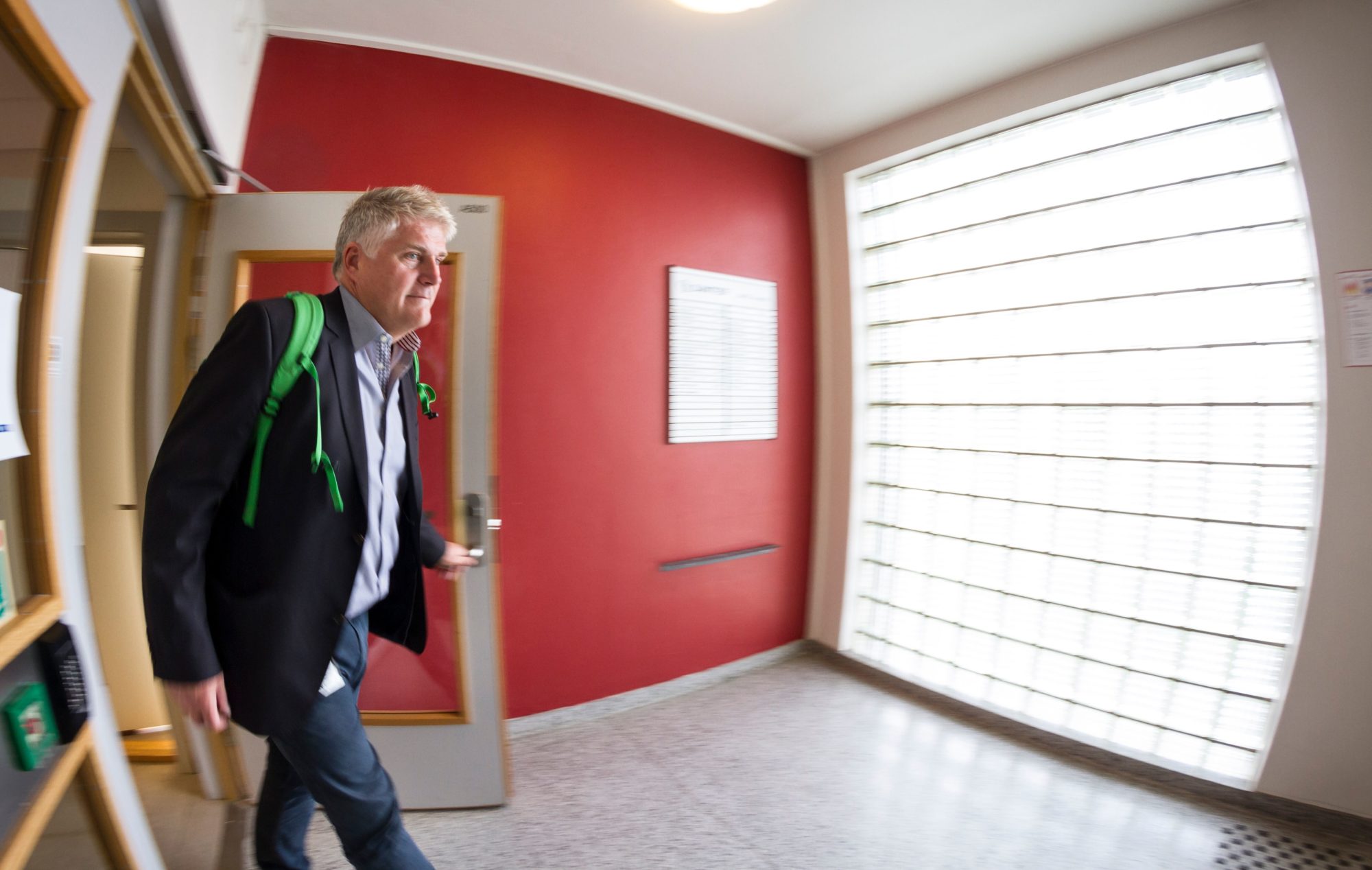Destination Brussels – with climate facts in his luggage
SINTEF’s climate change ambassador Nils Røkke is on his way to Brussels looking forward to a new job and new assignments. He has been appointed as Chair of the European Energy Research Alliance (EERA). This in a world in which the threats posed by climate change are increasingly being portrayed as “fake news”.
FACTS:
What is the EERA? The EERA is a public research alliance that brings together more than 175 research centres and universities, working together to promote energy research that builds on domestic and Europe-wide research initiatives. EERA is the cornerstone in the European Strategic Energy Technology Plan (SET Plan).
“It is probably the status of climate-related research in the world today. I recently had a meeting with John Podesta, best known as former Chair of the Center for American Progress, an election strategist for Hillary Clinton, Chief of Staff to President Bill Clinton and adviser to Barack Obama. He has been an advocate for climate-related issues in the US, and instrumental in the contributions made by the US to the IPCC, Mission Innovation and the climate change agreement reached between China and the US.”
The meeting was arranged by the environmental organization Bellona in connection with Podesta’s visit to Europe to meet heads of government and executives. The topic of the meeting was the status of climate scientists and climate-related research into clean energy in the US.
How did he describe the current situation for American researchers into climate issues?
“Podesta’s description of the situation was worse than I feared. He says researchers are afraid to publish. Attempts are being made to coerce them to change their conclusions, and they are concerned that access to data now in the public domain from Earth observatories, as well as oceanographic and other data related to the planet and the state of the atmosphere, will be limited or even suppressed.
The Coast Guard’s budget has been cut, which means that measures to protect the marine environment have been significantly undermined. NASA and the US Geological Survey have been told to focus on tasks other than those involving climate-related data. Data access for other users is restricted. Funding from the US for the UN’s Climate Convention is faltering and there is uncertainty about the country’s willingness to support the work of the IPPC, both in terms of resources and data. The agreements made between the US, China and India are in grave danger of losing all their funding.
Scott Pruitt, who is the new administrator of the EPA, has said that he will ‘red team the climate’ – meaning that his department will attempt to refute anthropogenic climate change. So there is no doubt that others must assume leadership on global climate-related issues.”
Who can take on this role?
“I think that these are challenges that the EERA must incorporate as part of its activities. We have taken the initiative of forming a working group addressing international collaboration and how we as an alliance can contribute by drawing on the resources of our 175 R&D partners from 27 European countries. We also see increasing interest from China for collaboration with the EU in connection with research. The EU has assumed chairmanship of the US Mission Innovation initiative, and I believe that we will be able to participate more robustly in global efforts to develop better and less expensive technologies”.
As Chair of the EERA, will this affect your “angle of attack?
“My position certainly provides a new and important set of circumstances. We have to work more and better together in order to develop the new solutions to global energy and climate-related problems. EU Commissioner Carlos Moedas’ mantra about openness in the fields of knowledge and research – ‘Open Innovation, Open Science, Open to the World’, has now been given renewed strength and relevance. Within the EERA we are taking this challenge seriously and have put the issue of expanded international collaboration on the agenda.”
Is there no sign of light at all at the end of the American climate tunnel?
“Yes, fortunately. There is a lot to be pleased about at grassroots level, and in connection with popular and industrial involvement. The one thing that encouraged me from my meeting with Podesta is that individual US states are counteracting federal attitudes by preparing their own climate change agreements, such as the one signed by Norway and California in July. Senator Brown in California has succeeded in getting 13 states to agree to comply with their share of commitments under the Paris agreement, from which Trump is removing the US as a whole. And the big US cities represent a major power base in the country. Many of them are continuing tirelessly to reduce their greenhouse gas emissions. The US business sector is committed to climate change mitigation and clean energy technology. This cannot be stopped and represents a much larger part of the US economy than the coal sector.”





